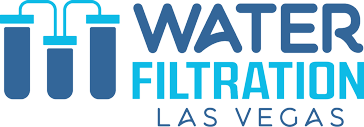
As a homeowner, having reliable access to clean and healthy water is important. Every day you are cooking, cleaning, bathing and undergoing various other tasks that require the use of water. However, contaminated water supplies pose a major threat to the health and safety of your family. Whole home filtration systems provide you with clean and uncontaminated drinking water that is vital to your existence. Need more convincing on why you should invest in a residential filtration system? Here is what you need to know:
Removing Contaminants
Home filtration systems will effectively eliminate any contaminants inside your home water supply. This includes toxins, microbial elements, and sediment. Sediment is something you certainly want to prevent because it can lead to extensive buildup inside your plumbing system. Once this happens, your system will experience clogs and blockage which will require you to hire a professional plumbing service to remove. There are a variety of filtration systems that are effective at eliminating different contaminants, which why we advise that you consult an expert on your best options moving forward.
Appliances and Plumbing Fixtures
If you live in an area that experiences a lot of hard water, then this will put your plumbing system and other water-using appliances in jeopardy. Hard water has a higher concentration of minerals that form limescale in your plumbing fixtures. Hard water is not necessarily unsafe to drink, but limescale accumulates over time and it will eventually render your plumbing system unserviceable. The hard minerals contained in the water form deposits in your plumbing which eventually create a clog or blockage.
Installing an entire residential filtration system will prevent the buildup of limescale. The filtration process begins at the source of your home water supply. You are essentially preventing hard water from making its way throughout your home. This will extend the lifespan of your appliances that rely on water to carry out their normal functions. For example, hard water is extremely detrimental to your washing machine. Once limescale accumulates inside of it, then the device will stop working completely. This is a situation you will want to avoid at all costs.
Whole Home Filtration Makes Cleaning Easier
Once your residential water filtration system begins filtering out all the contaminants, you will notice that there are no more splotches or stains on your kitchenware or clothes. Uncontaminated water is much more ideal for cleaning. Hard minerals are usually responsible for all of the imperfections in your cleaning. The same goes for all of the plumbing fixtures throughout your home, including your faucets and showerheads.
What Different Types of Residential Water Filtration Systems Are There?
1 – Reverse Osmosis (RO) Filtration Systems
A whole home RO system entails the use of a semi-permeable membrane that separates and filters out contaminants. RO systems are considered to be among the most effective home water filtration methods because they produce remarkably clean drinking water. RO filtration removes roughly 99% of contaminants from your water supply, including volatile organic compounds (VOCs), some pesticides, solvents, and chlorine.
With a more intensive filtration process, you will likely need to spend more money to install it. Most RO systems will also require a pressurized water tank because filtration occurs at a slower rate. Although RO systems produce the cleanest and safest drinking water, they also create a lot of brine. They are still, however, an excellent option when it comes to ensuring that you and your family have reliable access to a healthy supply of water.
2 – Activated Carbon Filtration
Activated Carbon filtration systems involve a fine carbon powder that effectively removes (the taste and smell of) chlorine as well as other chemical contaminants. Some of those impurities include lead, VOCs, and microscopic cysts in water. The high porosity of the filter also allows it to absorb more contaminants in your water supply. Activated carbon is effective in preventing bacterial growths from taking place in your water supply.
Activated carbon filtration for your entire home is very affordable to install and is compatible with other filtration technologies. Most whole home water purifiers do not achieve the same flow rate and lifespan as activated carbon filters. We should inform you though that activated carbon cannot remove hard minerals and sediment. For this, you will need to install a separate filter.
3 – Distillation
Distillation is the process of producing evaporated water by boiling it via an electric heater. During evaporation, the steam is collected and condensed into distilled water. When you vaporize the water, you are discarding and eliminating most of the contaminants and minerals contained within your water supply. Distillation can be a slow and time-consuming process, which is not ideal for households of four or more people.
Distillation will remove the majority of contaminants from your water supply, making it a viable whole home water filtration system. This includes dissolved solids, excess minerals, and bacteria. However, the low output of distillation makes it unfeasible for larger families. The system will also consume a lot of electricity, which means that it will come with a higher operating cost.
Conclusion
Your home water supply contains a lot more contaminants and impurities than you can imagine. Also, think about your municipal water supply. What’s the water quality like? If it’s not up to par, then you should strongly consider installing a filtration system for your entire home. If you want to investigate the issue further, you can always send a sample of your water to a state-certified laboratory for testing. Furthermore, you should always be looking out for the people in your household who are vulnerable to the effects of contaminated water. A residential water filtration system can make a huge difference in you and your family’s daily lives.
